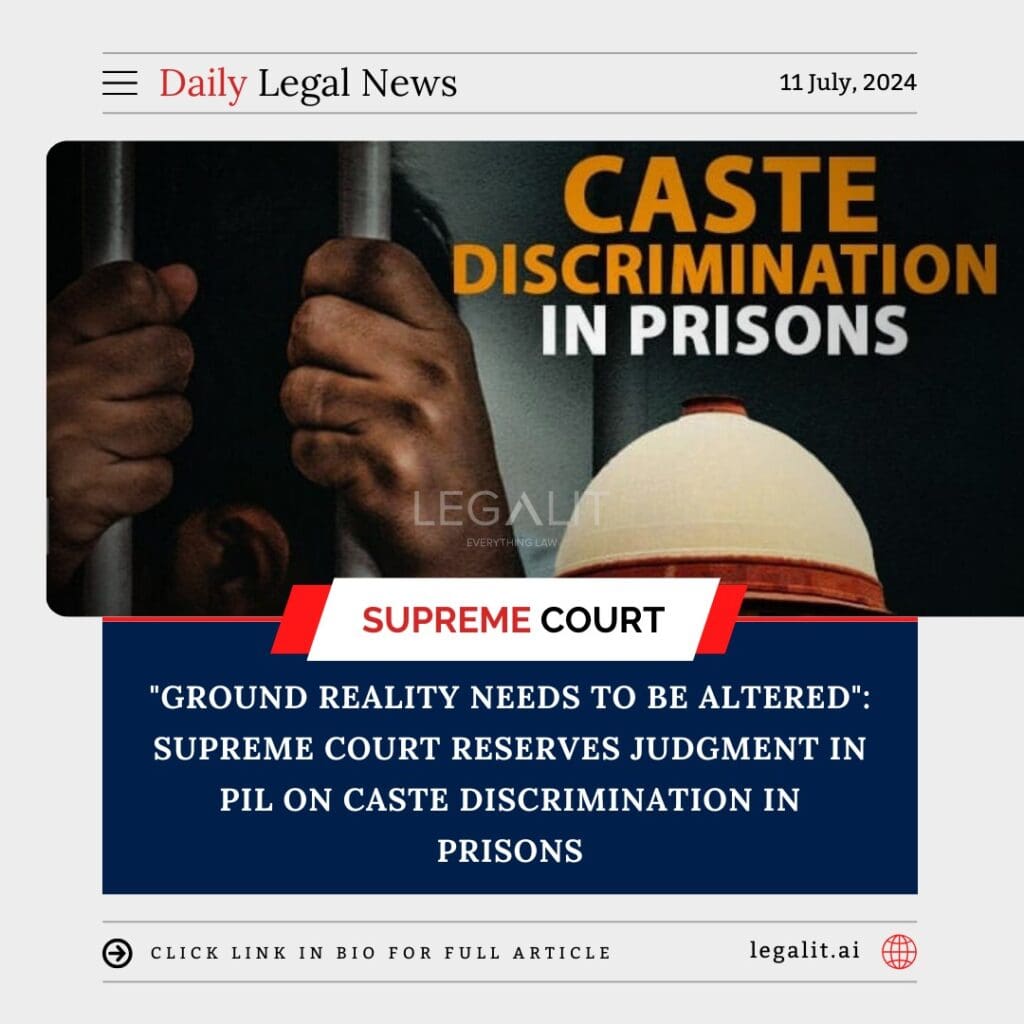
In a significant move addressing systemic issues within India’s prison system, the Supreme Court has reserved its judgment on a Public Interest Litigation (PIL) concerning caste discrimination in prisons. The PIL highlights the pervasive nature of caste-based discrimination and calls for substantial reforms to ensure equality and justice within the correctional facilities.
Background of the Case
The PIL was filed to bring attention to the entrenched caste-based discrimination faced by inmates in various prisons across India. The petitioners argue that individuals from marginalized castes often face disproportionate mistreatment, lack of access to basic amenities, and biased treatment by prison authorities.
Supreme Court’s Observations
During the hearings, the Supreme Court made several critical observations:
- Need for Reform: The Court emphasized that the “ground reality needs to be altered,” acknowledging the systemic nature of caste discrimination within prisons. The Justices pointed out the urgent need for comprehensive reforms to address these deep-seated issues.
- Equality and Justice: The Court reiterated the constitutional mandate of equality and non-discrimination, highlighting that the rights of all prisoners, irrespective of caste, must be upheld. The Justices stressed the importance of ensuring that the prison system does not perpetuate social inequalities.
- Data and Accountability: The Court underscored the need for reliable data to understand the extent of caste discrimination in prisons. It suggested that proper documentation and accountability measures are essential to implement effective reforms.
Implications of the Judgment
The Supreme Court’s forthcoming judgment is expected to have significant implications:
- Policy Reforms: A ruling in favor of the petitioners could lead to substantial policy reforms aimed at eradicating caste discrimination in prisons. This could include new guidelines, training for prison staff, and stricter enforcement of anti-discrimination laws.
- Monitoring Mechanisms: The judgment may mandate the establishment of monitoring mechanisms to ensure compliance with anti-discrimination policies and to provide a platform for inmates to report grievances.
- Public Awareness: The case has already increased public awareness about caste discrimination in prisons, potentially prompting further activism and advocacy for the rights of marginalized groups.
Reactions and Expectations
The case has garnered significant attention from various quarters:
- Human Rights Activists: Many human rights organizations and activists have lauded the Supreme Court’s proactive stance and are hopeful that the judgment will bring about meaningful change.
- Legal Experts: Legal scholars emphasize the importance of this case in setting a precedent for addressing systemic discrimination within state institutions.
- Public and Media: The case has sparked widespread media coverage and public debate, highlighting the need for justice and equality in all aspects of society, including the prison system.
Conclusion
The Supreme Court’s reserved judgment on the PIL concerning caste discrimination in prisons marks a pivotal moment in the fight for equality and justice within India’s correctional facilities. As the nation awaits the final judgment, there is cautious optimism that this case will lead to significant reforms and enhance the protection of marginalized communities within the prison system.